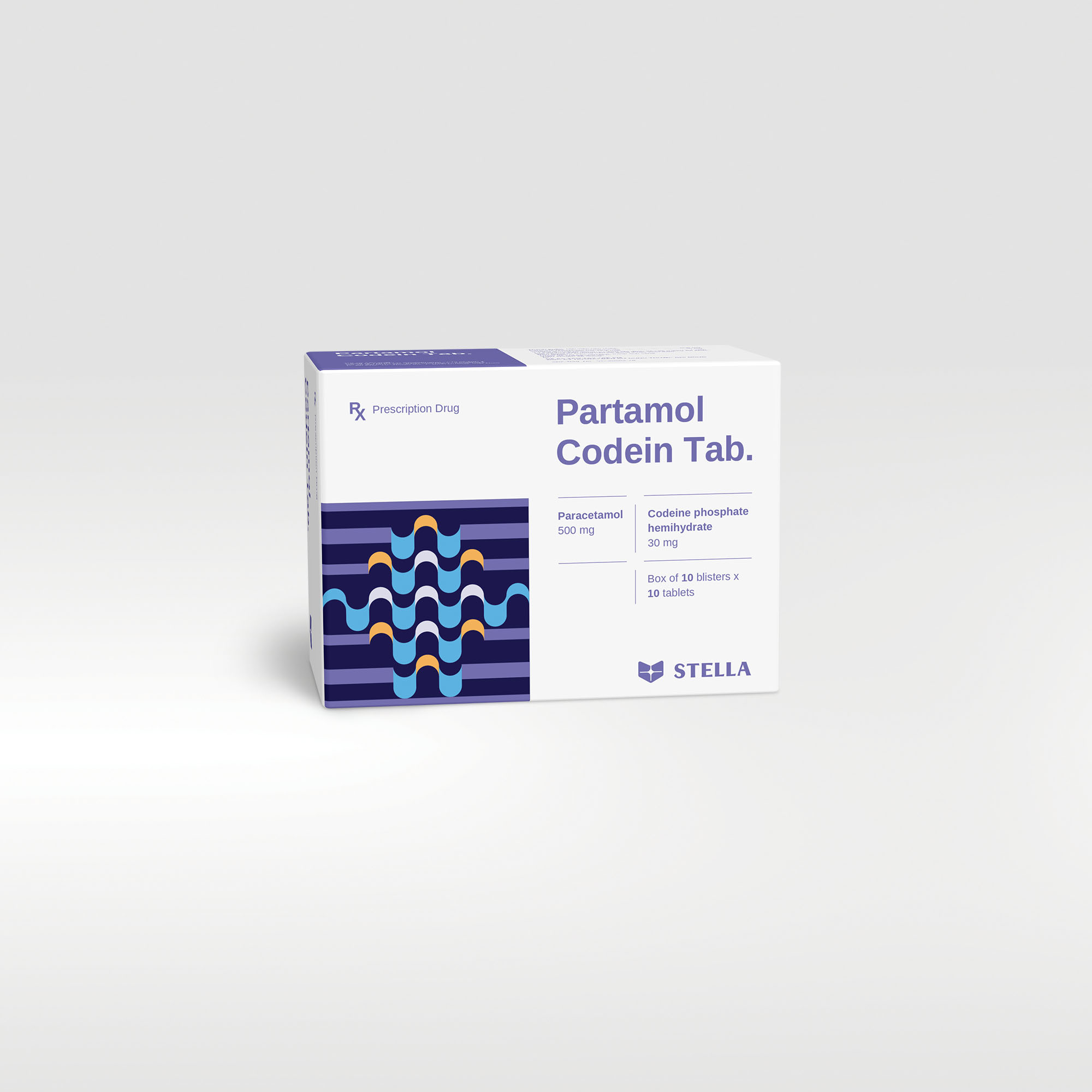Partamol Codeine Tab. Rx
Paracetamol and codeine phosphate tablets combine the analgesic effects of a centrally acting analgesic, codeine, with a peripherally acting analgesic, paracetamol.
| Pack size | Box of 100 tablets |
| Shelf-life | 36 months |
| Composition | Paracetamol, Codeine phosphate hemihydrate |
| Dosage forms and strengths | Tablet. Paracetamol 500 mg, Codeine phosphate hemihydrate 30 mg |
Product code :















